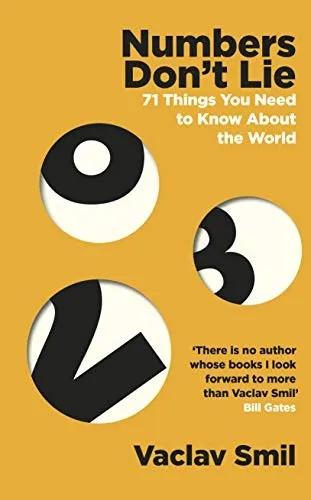
This list is curated from 3 mentions and sorted by most mentioned, then by date of most recent mention. The more a book is mentioned, the more likely it's recommended and a favorite!

This list is curated from 3 mentions and sorted by most mentioned, then by date of most recent mention. The more a book is mentioned, the more likely it's recommended and a favorite!
My favorite author’s new book might be his best one yet. Each chapter covers one of 71 facts about the world that help you understand how history ties together. I unabashedly recommend it to anyone who loves learning.View all 2 sources
A quick read whirlwind tour of a number of topics, at a pace of only about 2-3 pages per topic. Some fun notes and examples: - 75% of all births between 2020 - 2070 will be in Africa - vaccinations have an extraordinarily high benefit-cost ratio, an approx. ~44X return on investment - estimated heritability of linespace is only ~15-30% (?) - humans are sweating champions in the animal kingdom, very useful for thermoregulation and endurance even in hot weather - synthesis of ammonia not only averted the Malthusian catastrophe, but also just in time allowed a blockaded Germany to continue manufacturing explosives and prolonged WWI by years. - renewables only provided ~4.5% of electricity in 2017, and electricity is only 27% of global energy consumption ;s - many large uses of fossil fuels have no clear non-carbon alternatives, including long-distance transport (air, water), production of primary iron, cement, synthesis of ammonia, plastics, space heating - no other domesticated land animal can covert feed to meat as efficiently as broilers (chickens raised for meat production), at a feed-to-meat conversion efficiency of ~15% (pork 10%, beef 4%). The lives of these chicken are straight up unethical - they live 7 weeks (normal lifespan is ~8 years), have malformed bodies, spend life in dark confinement. But cost $2.94 / pound of boneless breast, great. - in North America / Europe about 60% of total crop production is for animal feed, not human feed - four pillars of modern civilization, allegedly: ammonia, steel, cement, plastics This is a fun / quick read, though mostly a large collection of mostly disconnected cliff-notes style quick fact summaries that are dense in numbers and comparisons and can become a bit exhausting. Perhaps due to speed, some topics get a somewhat questionable, almost misleading treatment, for example I found the EV and GDP sections mildly annoying. 3/5View source